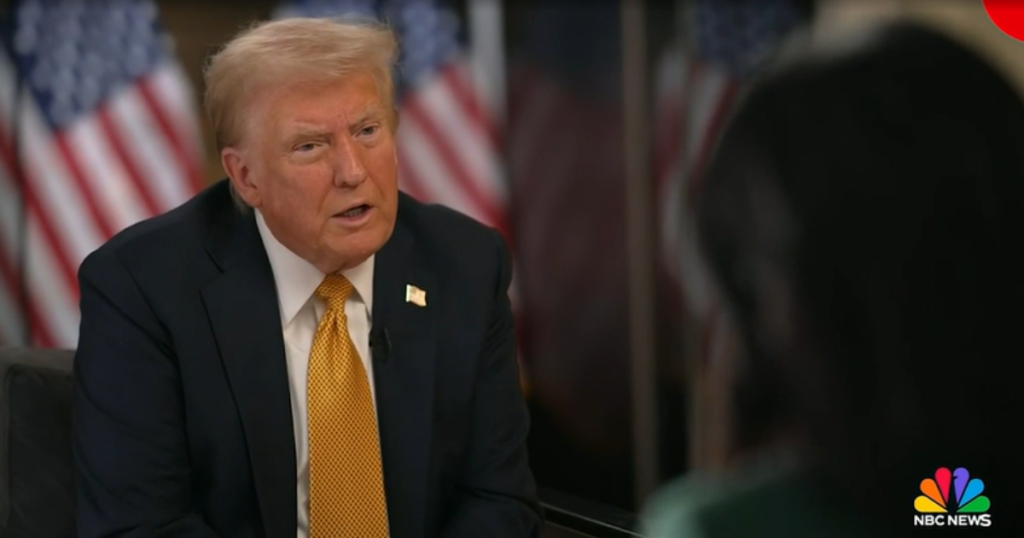

America, since its inception, has been a place of opportunity for aspiring, high-skilled people.
The geniuses and artisans of Europe of the eighteenth and nineteenth centuries flooded to these shores, enriching the society in many cases and making invaluable contributions to American culture – from our culinary traditions to newfound architectural styles – that continue to be influential through the present day.
This custom of selecting only the best and brightest is not anomalous to great nations throughout history.
All nations are only as good as the people which compose them: thus, any worthwhile nation would desire to enhance the quality of its people overall in order to elevate its global standing.
That operative goal, however, cannot be achieved under the present, suicidal policy of citizenship by birthright.
Among nations of the world, America is the only developed one that confers citizenship onto anyone simply for having been born to a parent who managed to inhabit these borders, regardless of legality.
That America is the only noteworthy country to still have this policy in place should be enough evidence alone of its insanity. The prevailing view among liberal legal scholars is that the Fourteenth Amendment sanctions this policy, which is permanent and cannot be altered.
This is flatly wrong. This erroneous interpretation is the byproduct of a slipshod and lazy construction of that particular Amendment, through the prism of erroneous interpretations of largely discredited, or at least, increasingly obsolete legal precedent.
Renowned and constitutional experts – from yours truly, to John Eastman, to Mike Anton, to countless others, have delved into these issues at great length elsewhere, all worthwhile reads that make compelling cases for the alternative (and frankly, common sense) view that not only does the Fourteenth Amendment not, by letter or spirit, authorize citizenship by birthright – its Framers would have actively objected to the pernicious interpretation favored by so many leftist academicians today, basically calling unconstitutional any policy that places any limits whatsoever on citizenship.
Instead, the framers of the Fourteenth Amendment — alongside the framers of the original Constitution — would be in lockstep with President Donald Trump’s view, that birthright citizenship is wrong, legally and morally — and that a change to current law is in order.
That citizenship should be a privilege and not a right that is automatically given has compelling arguments independent of the broader legal and constitutional considerations that couch its moral framing in the popular discourse, which, although important, ultimately run downstream of the inherent common sense and undeniable logic for why such a policy is bad for any nation.
These arguments may be divided into two categories: 1) logistical or “practical” reasons for why citizenship should not be conferred simply for having been born on these shores; and 2) deeper political reasons, dealing in national pride, patriotism, and self-identity, for why a policy of unmitigated birthright citizenship, especially today, will lead any society – the United States above all – down the pathway to inevitable decay.
On the first category, logistically it is easy – even intuitive – to divine why citizenship cannot be granted automatically simply because a particular individual was born on U.S. soil. The first deals with the magnitude of the present immigration crisis, whereby at least 15-20 million illegal aliens (and by other estimates, tens of millions more, potentially upwards of 50+ million) currently reside in the homeland, unchecked and without penalty. It may not be politically correct to say, but a significant portion of these illegals – far more than what legacy media would have you believe – harbor criminal records, and not simply crimes for having trespassed into the interior.
A growing share of this lot of illegals are linked to drug and sex-trafficking cartels. On this score, it is obvious why they should not be here.
However, once these criminals have children, they weaponize them like pawns to further exploit our reckless immigration policy as emotional leverage to remain in the United States with impunity, continuing their destructive enterprises.
It is easy to create a sob story of a young child who might not know any other country as his home: but that narrative is both oversimplistic – in not telling the dark money side of the story – as well as nefarious – to both child and nation alike.
The current immigration structure incentivizes dangerous criminals to have children who they otherwise would not have – at least in the United States – to extend their stays, sometimes indefinitely, while domiciled in the homeland.
The poster child for continuing a policy of birthright citizenship then masquerades those who create narratives, like Democrat-funded NGOs such as Catholic Charities, which then have financial incentives to keep the exploitation ruse going. It is almost always true that the most vocal mouthpieces for perpetuating our insane open borders policies are economically linked to drug or child sex trafficking money, and thus have massive reason to adopt their position in the first place.
As for the nation writ large, the negative externalities are too many to count: continuing the narcotics trade results in a weaker population overall, higher rates of unproductivity and avoidable accidents, and inevitably, a higher number of premature deaths, especially among the youth.
Precious resources are now being used to fight off drug dealers and cartels – and treat the afflicted in hospitals – that could otherwise be more used on societally-enhancing spending efforts like better schooling, infrastructure, and other national renewal projects if the former problems did not exist.
The dangerous homes in which the children of traffickers are raised is no place to form productive citizens equipped with the virtues of being a law-abiding and value-enhancing individual to society. In so many of these communities, English is but an afterthought.
Assimilation projects are nonexistent: the Left, which actively profits off such policies, demonizes any attempt at assimilation – including every attempt to inculcate foreigners or children of foreigners with American values, the baseline of which should include proficiency in the English language, respect for the rule of law, and at least a rudimentary understanding of our history and Constitution. Without these cultural unifiers, Americans become more alienated and differentiated in ways that breed distrust among peoples and discontent for institutions, yielding a much more fractured and polarized society overall.
No nation can stand on its own terms as a mere economic zone: one that is culturally relativistic and cosmopolitan in the worst ways possible: a hodgepodge of amorphous identities and alien practices, not even bound by a common language in pursuit of E pluribus unum. As a matter of practice, that recipe always spells doom.
It leads to systematic economic gridlock and bottlenecks in institutions ranging from mass transit to education to healthcare (think of the delays and high propensity for error of a physician or nursing staff with an insufficient grasp of the English language).
With a greater share of the population not knowing English, it additionally means far fewer people have any handle of our Constitution – and the fundamental principles it lays out like due process and free speech rights – a document that is, after all, written in and to be interpreted by “English speaking peoples.”
These aforementioned practical concerns of persisting in the current policy, of which only a sampling was outlined, flow downstream of more fundamental issues concerning civic identity and national self-conception.
Any confident organization, sure of its constitution and purpose, will orient around a basic set of principles or standards that articulate a series of best practices. What these best practices really amounts to is a value system that comprise the organization’s greater cultural identity and sense of purpose.
For a business, that might mean having a college degree and appearing to work on time and in person every day. Analogously, for a nation, those common or unifying values are what binds (and creates) a People – providing the lifeblood of a civic religion that keeps the nationhood vehicle humming along one generation after another.
America’s civic religion, so to speak, has been one of ordered liberty and self-governance. These are the component parts of We the People.
These general principles derive from both Anglo-American law – whose highest expression in the American civil context is the Constitution and Declaration of Independence – and Christian ethics, a robust and lived expression for which every Founding Father (and generations of statesmen thereafter) believed no country that hoped to remain free could live without.
Accordingly, no self-respecting country steeped in these principles would allow simply anyone to cross over the southern border and become a citizen by default. America’s political culture of self-governance requires hard discipline and self-sacrifice.
These are virtues that are cultivated over time in a people, and only passed down through the generations by a determined and concerted effort.
If it were so easy, a matter of mere happenstance, then all the blood and political turmoil that was a tragic but necessary component of the American Revolution and Civil War would have been in vain.
Similarly, all the bloodshed in wars America fought throughout its history would be for naught. The idea of American exceptionalism – evocative of the romantic, classic image of a “City upon a Hill” – taps into this notion of uniqueness.
The United States of America is exceptional because it is unlike anything seen in history; furthermore, it has no contemporary equivalent, even in modern times. Exceptionalism by definition means something that is exclusive.
The exclusivity of the “American Experiment” is not something that happens accidentally, it’s a cultural sensibility inculcated in a particular People, whose values have been passed down generation by generation.
That throughout history that People happened to be overwhelmingly European – or a majority English-speaking in Christian is not a mere afterthought or footnote.
This and other facts are the lifeblood of America’s civic religion; they cannot be swept aside willy-nilly by virtue of their inconvenience or “problematic value” within the moral framing of twenty first century wokeism.
Of course, judging by that standard, virtually all Western History would be deemed “problematic.” But the issue with that reasoning (aside from its reliance on a reductive and simply idiotic system of secular morality) is that it is our history which is responsible for who we are today.
To indict all of history, as the modern progressive would, as antiquarian or in scathingly critical terms: which is to say, only ever, negatively, as a standard of judging what not to do – then all the things responsible for making us who we are today for the better must also be dispensed with.
That includes the moral framework or values of the past – including the sacrifice, discipline, resilience, and honor – that flowered the policies which led to America being able to cultivate an extraordinary People who in turn produced the freest society ever seen in the modern world.
This of course would be an unmitigated disaster for any developed country, but a pluralistic one like the United States, would make it catastrophic.
In many ways, our modern decadence – the fruits of the toils and labors of the collective past – has ironically clouded our vision to the harsher truths needed to produce and sustain the sort of country we so readily take for granted today (and which, because of that forgetting, is rapidly dissipating before our very eyes).
These sterner facts ultimately turn on the deeper or “political” reasons, referenced earlier, that explain why no serious country would ever take so cavalierly a policy, much as the United States does, of automatic birthright citizenship.
If any person in the world can become a citizen for being born on U.S. soil de facto, it undermines faith in the entire system of values – including the sacrifices, discipline, and hard work – necessary for producing ordered liberty, the cornerstone of America’s civic religion, to begin with.
Again, exceptionalism means exclusivity; and exclusivity entails a society committed to educating its citizens in a comprehensive value system, one geared towards a low time preference, or ability to delay instant rewards for greater things in the distant future — all for the benefit of the common good.
The maturity that such a system entails is but another hallmark of a great people, one that both recognizes the importance of thinking beyond immediate appetites and has enough wisdom and discipline to actually execute such a project.
By stark contrast, any immigration policy that disregards this great tradition and lets in tens of millions of foreigners who don’t speak English, who know nothing about America’s political culture, and who have no incentive to do so, is one doomed to failure.
But more tragically, it does a grave injustice to our forefathers – who did appreciate what was needed to create a society enough to labor relentlessly – shedding much blood along the way, and in many cases making the ultimate sacrifice – so that their progeny might one day enjoy the fruits of their labors.
That our modern sensibility is so fleeting and transactional; that politicians struggle so mightily to adopt even the slightest perspective that looks beyond Gross Domestic Product, realizing what so many regular Americans know intuitively, that no amount of money is worth debilitating those sacred bonds that hold a nation together.
And which indirectly helps boost that prolific economic engine whose benefits are so readily exploited by those who should know better is a travesty. In sum, they are the suicidal recipes that have brought America to the brink of economic and cultural collapse, and for doing so, have compelled eighty million Americans to deliver President Trump the most consequential electoral victory seen in generations just over a month ago.
The stakes are far too high to risk gambling what diminishing reserves of America’s political culture remains.
It is for this reason that the Fourteenth Amendment must be corrected, reinterpreted in its proper, original, and more conservative framing whereby birthright citizenship comes to a categorical end.
This would bring the United States in line with every other nation in the world. At the same time it would aptly relegate a policy that has been squandering our cultural inheritance – and doing unspeakable indignities to our ancestors – hopefully now forever to that dustbin of history’s failed experiments.
The post INGRASSIA: President Trump Doubles Down On Pledge To End Birthright Citizenship, A Policy Backed By The Overwhelming Majority Of American People appeared first on The Gateway Pundit.







